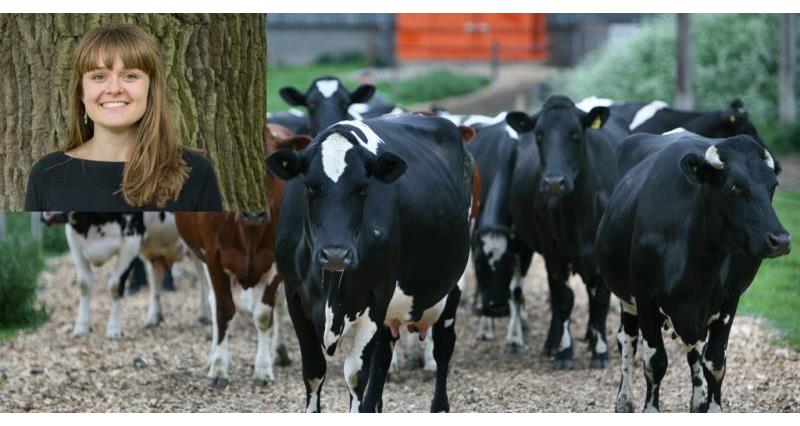She writes:
Six months into my role as dairy adviser, I took the opportunity to spend a few days in the South West getting to know some of the local farmers and milk buyers and talking to consultants about the most important issues facing the dairy sector today and the challenges and opportunities that lie ahead.
Wyke Farms, Barbers and Lye Cross are all situated within 30 miles of each other and between them are supplied by over 300 farmers. Understandably, competition between the three is healthy with each cautiously guarding new initiatives and potential new trade opportunities.
Whilst all three processors are supplying top domestic retailer stores with their products, it is clear that there is also significant focus on export opportunities to countries both within and outside the EU. Whilst Brexit does bring with it the prospect of higher tariffs, a focus on premium and niche markets does seem to offer some security to those businesses looking to continue exporting post 2019.
It was reassuring to learn that 2 of the 3 processors visited had their own farmer representative boards and the third had regular and frequent communication with a smaller pool of farmers and took the time to visit them individually.
Initiatives such as Farm Link show how processors and farmers in the South West are also collaborating to help ensure children of school age are educated as to how milk is produced and processed and the nutritional benefits it offers. Advertised as “a classroom in the countryside,” Farm Link was originally set up by John Alvis of Lye Cross Farm and now provides over 30,000 children per annum with the opportunity to engage in carefully planned and structured activities delivered at and around working farms by both farmers and teachers. The initiative is currently looking to expand into Devon and Cornwall.
Wyke Farms were very proud of their 100% green commitment, generating their own electricity and gas for cheese making and supplying green energy into the grid. They also offer their farmers a 0.2ppl renewable energy bonus to encourage investment in green technology to power their dairies – around 30% of Wyke farmers now receive this bonus.
It was clear that the appointment of ex-DCD Company Secretary Michael Masters as Milk Supply Manager at Barbers has been a catalyst for many changes, Barbers have now launched a new Assured Contract which offers a 1.5ppl bonus to those farmers who sign up to the criteria. They have also recently set up a farmer representative board and are in the process of arranging factory visits for all their farmers to improve processor-farmer relations and show exactly what happens to the milk once it gets off farm.
Despite such close proximity, the processors I visited all had very different styles of working and different ideas as to what they wanted their businesses to deliver in the futuree. This offered a certain degree of choice to dairy farmers in that region. Labour was a fundamental issue at nearly all the places I visited – whether labour on farm or staff needed to manage the processing plants. Whilst many of the workers were local, a significant number did come from outside the UK and the worry about what will happen to access to EU labour post-Brexit was seen as one of the key challenges facing the dairy sector.
